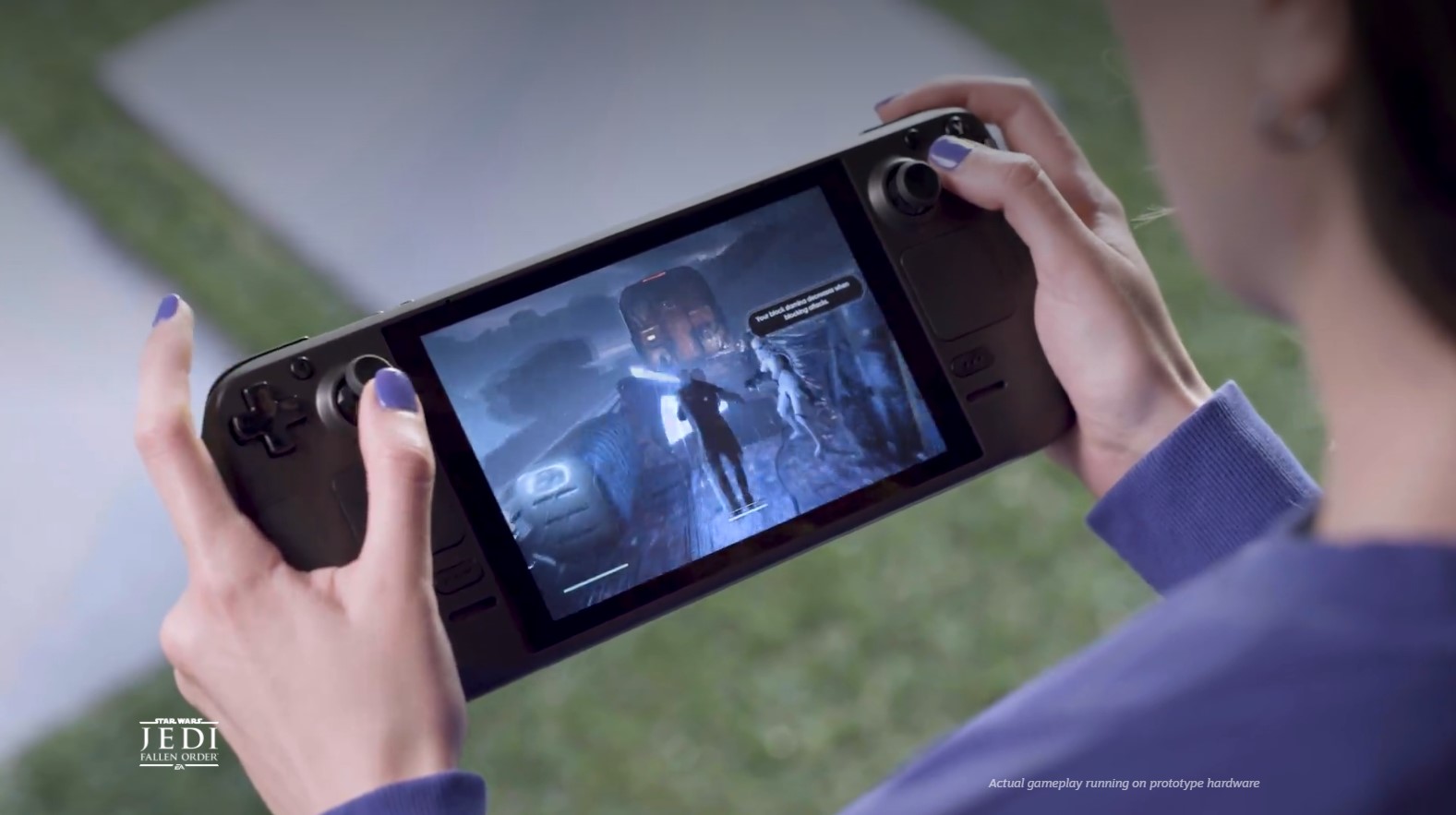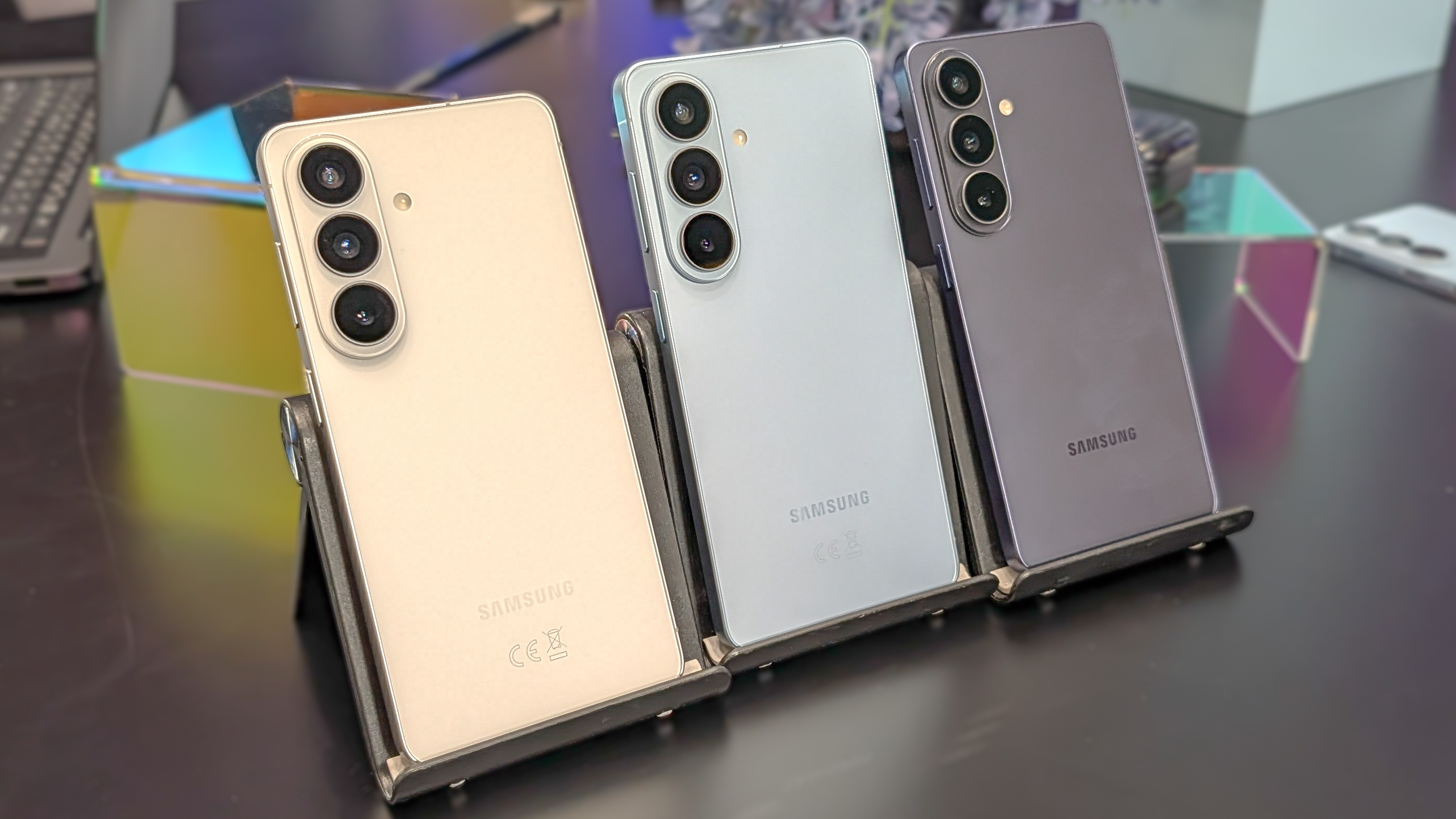Steam Deck won’t have Nintendo Switch-like drift, says Valve
‘Joy-Con drift’ that plagued Nintendo Switch apparently won’t be an issue for Steam Deck

Here at Tom’s Guide our expert editors are committed to bringing you the best news, reviews and guides to help you stay informed and ahead of the curve!
You are now subscribed
Your newsletter sign-up was successful
Want to add more newsletters?
Join the club
Get full access to premium articles, exclusive features and a growing list of member rewards.
Valve’s Steam Deck looks a lot like a Nintendo Switch at a glance, which may cause nasty flashbacks for anybody who has had to deal with the dreaded ‘Joy-Con drift’ issue that became so severe it resulted in several lawsuits. In short, degradation of the analogue stick leads to ‘phantom movements’ where players move without any user presses.
Apparently, Valve has considered this problem when designing the Steam Deck, and was quite clear that reliability was a prime concern when asked about the potential for issues by IGN.
- The best gaming PCs you can buy
- Best gaming headsets right now
- PLUS: Steam Deck is an oddball machine — and I love everything about it
“We've done a ton of testing on reliability, on all fronts really – and all inputs and different environmental factors and all that kind of stuff,” said hardware engineer Yazan Aldehayyat. “I mean, obviously every part will fail at some point, but we think people will be very satisfied and happy with this,” he added.
Designer John Ikeda backed this up, adding that Valve “purposely picked something that we knew the performance of” because “we didn’t want to take a risk on that.”
“I’m sure our customers didn’t want us to take a risk on that either,” he added.
Of course, nobody wants their hardware to fail, but Valve would actually be in a far worse position than Nintendo if the Steam Deck’s analogue sticks were prone to drifting, or some other kind of controller breakage.
While the Nintendo Switch lets you simply disconnect a faulty Joy-Con and attach a fresh one in its place, the Steam Deck is a single unit more akin to the Switch Lite: if repairs were required on a stick, the whole unit would need to be shipped back to Valve. Add in the fact that, for now, the Steam Deck is not a mass-market product with plenty of spare parts to go around, and you can see why Valve wanted to ensure this problem was mitigated as much as possible ahead of release.
Get instant access to breaking news, the hottest reviews, great deals and helpful tips.
A more pressing issue for Valve is ensuring complete compatibility with Steam OS and its Proton software. In particular, there’s a concern that games with anti-cheat software currently don’t work via Proton, and that includes big names like Destiny 2, Apex Legends and PUBG.
It’s unsurprising, therefore, that Valve is working hard to fix this problem ahead of units arriving in early adopters’ hands in December. “For Deck, we're vastly improving Proton's game compatibility and support for anti-cheat solutions by working directly with the vendors,” the company writes.
- More: See the best PC games
Freelance contributor Alan has been writing about tech for over a decade, covering phones, drones and everything in between. Previously Deputy Editor of tech site Alphr, his words are found all over the web and in the occasional magazine too. When not weighing up the pros and cons of the latest smartwatch, you'll probably find him tackling his ever-growing games backlog. He also handles all the Wordle coverage on Tom's Guide and has been playing the addictive NYT game for the last several years in an effort to keep his streak forever intact.
 Club Benefits
Club Benefits











